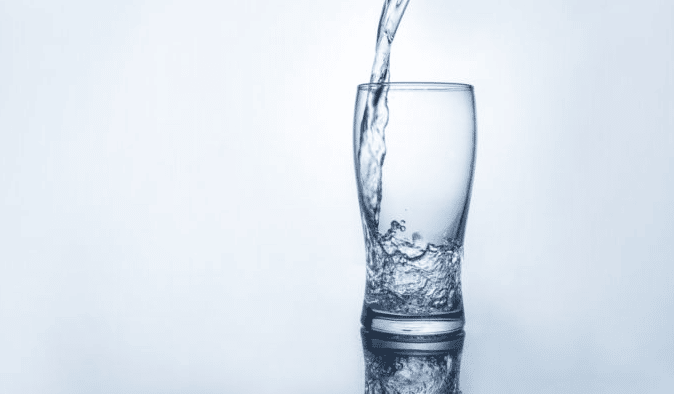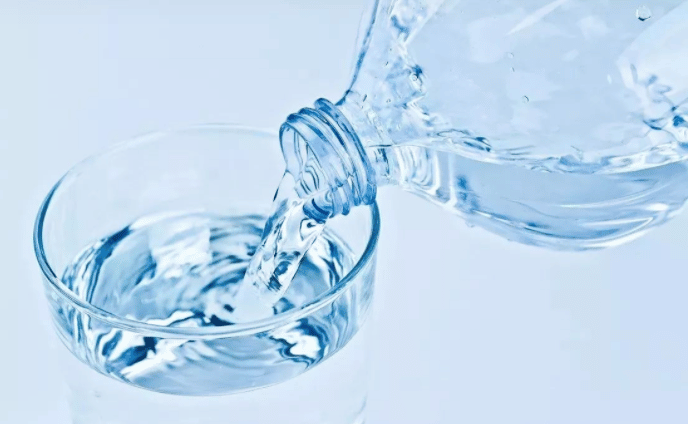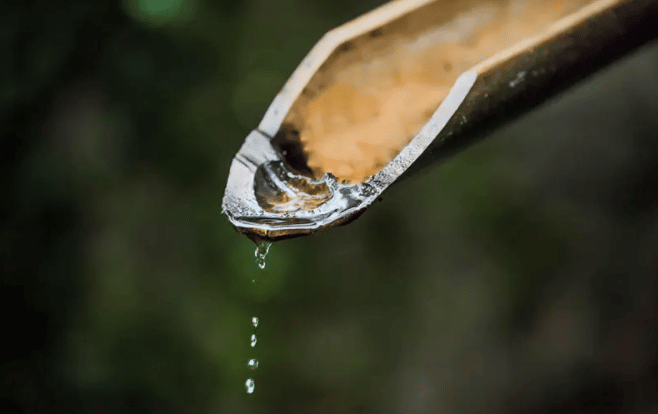The quality of the water is important. Fish need to live in relatively clean water, and drinking water also needs to be free of impurities in order to be healthy for those who drink it. Water quality is also a key component of many industrial treatment applications. For example, if excessive impurities are found in the water, the boiler water needs to be treated. Large amounts of impurities can lead to scaling and deterioration of system efficiency, which is why many industrial facilities require regular water treatment.
There are many different types of water, including
- Purified water
- Mineral water
- Distilled water
- Spring water
Understanding the differences between the various types of water can help you determine which option is best for you or the specific application of the water. The main differences between distilled water and purified water are detailed below.
What is distilled water?

Distilled water is a type of pure water that is extracted directly through a distillation process. This process is one of the methods that can be used to purify water. Distillation works by boiling the water and collecting the steam produced, which is returned to the water once it has cooled.
This purification process has proven to be very effective in removing contaminants such as
- Many different viruses and bacteria
- Certain protozoa, such as Giardia lamblia
- Various chemicals such as sulfates and lead
Distilled water is commonly used in laboratories and medical facilities because of its purity. Although purified water is more commonly consumed than distilled water, distilled water is still drinkable because it is completely free of impurities.
Health benefits of distilled water
- Distilled water is one of the most effective ways to remove contaminants from water
- Distilled water is free of contaminants such as bacteria and pesticides, which can be beneficial for people with weakened immune systems
- You may live in an area where there are no particularly strict tap water regulations, which means drinking distilled water will make you healthier
- People with HIV or various cancers are at higher risk of getting sick from impurities in their water or food, which means distilled water should be a better choice than other types
- Distilled water removes chlorine from the water, which should enhance the taste of the water
While you should not drink only distilled water, it is highly recommended that you consider drinking distilled water from time to time, as it offers many health benefits. However, before you do so, you should be aware of the various problems associated with drinking distilled water.
Disadvantages of distilled water
Although distilled water is the cleanest, purest water you can find, that doesn’t mean it will be the healthiest water you drink.
Problems with drinking distilled water include.
- While the distillation process removes contaminants, it also removes electrolytes and natural minerals that are vital to human health
- Complete removal of healthy minerals such as magnesium and calcium from distilled water
- Not getting enough magnesium and calcium in your diet puts you at higher risk for heart disease, fractures and premature birth
- Distilled water removes fluoride, which helps prevent tooth decay
Distilled water should be safe to drink as long as you maintain a healthy, balanced diet. Make sure that the healthy minerals and electrolytes removed from distilled water are consumed through other aspects of your diet.
What is purified water?

Purified water is water that has been effectively filtered in order to remove various impurities from the water. Purified water can be made from tap water and groundwater, which means it is easily accessible to almost any homeowner.
The many impurities and contaminants removed from water during the purification process include
- A wide range of chemical contaminants
- Bacteria
- Bacteria
- Algae
- Certain metals, such as lead and copper
- Different parasites
There are several different methods that can be used to purify water, including
- Filtration
- Sedimentation
- Coagulation
- Disinfection
While these four processes differ significantly in the way they purify water, they can provide similar results. In order for water to be classified as pure, its concentration must be less than 10 PPM, which means that approximately 99% of the contaminants must be removed from the water.
Health benefits of purified water
Purified water is considered to be the healthiest water available, which is why it has many significant health benefits. Although standard tap water is usually safe to drink, this water may still contain traces of contaminants, which is why it is recommended that you choose purified water.
The many benefits of drinking purified water include.
- Many purification methods eliminate chlorine from the water, a standard chemical associated with a high risk of colorectal cancer and similar cancers
- Removal of harmful bacteria that can cause nausea, stomach pains and various illnesses
- Provides a protective barrier for your skin to keep impurities out
- Good for your colon and digestive tract
- Improves the taste of water by removing metals, organics and chemicals
- Removes heavy metals such as lead and copper, which are highly toxic
You should drink pure water because it is very healthy and removes most of the contaminants that remain when you drink public drinking water. While the EPA has established guidelines that require public drinking water to remove at least 90 percent of contaminants, different states have their own guidelines. While state guidelines for public drinking water must meet or exceed 90 percent contaminant removal, some states have stricter rules than others.
Drinking water that is purified of 99% of contaminants is always healthier than drinking water that still contains up to 10% of contaminants. While purified water is healthy to drink, it is recommended that you drink other types of water as well. Ultrapure water does not contain the electrolytes your body needs. Electrolyte deficiencies can lead to high blood pressure and other health problems.
Disadvantages of purified water
There are a few things you should be aware of before drinking pure water. Although pure water is healthy, disadvantages do exist.
The main problems with purified water include.
- Some purification systems remove fluoride from the water, a beneficial mineral that can reduce tooth decay and improve overall dental health
- Water purification systems require regular maintenance to ensure that contaminants are not added to the old filter
- The purification process may not remove certain contaminants, which may include some chemicals and pesticides
- Buying purified bottled water or choosing a home purification system can be expensive, which is why you should weigh the pros and cons of drinking this water
- If you choose to buy purified water in plastic bottles, doing so can result in a lot of waste and is harmful to the environment
Purified water vs. filtered water
If you are considering drinking purified water, you should first understand the difference between filtered water and purified water. These two terms are often used interchangeably, but they are actually somewhat different. Even if both types of water are filtered, purified water goes through an additional purification process, which may include everything from distillation to reverse osmosis.
Due to the additional process of purified water, it is much purer than filtered water. When the purification process is performed, at least 99.5% of the contaminants will be removed from the water, regardless of the exact source. With filtered water, the source of the water determines how many contaminants can be removed.
Distilled water vs purified water: Which is better?

Both purified and distilled water are very healthy for you and are essentially the same. The main difference between the two is that purified water does not necessarily remove all of the healthy minerals that can be found in water, whereas distilled water does not. It is also important to understand that the process of distilling water uses a lot of energy, which means it is somewhat harmful to the environment. If you use the reverse osmosis process, you will use less energy. Simply put, the difference between distilled water and purified water is the following two points:
- Purified water has chemicals and contaminants removed, but may contain minerals.
- Distilled water goes a step further and removes contaminants and minerals.
| Distilled water | Purified water |
| Distillation is super effective at getting rid of any additional junk in your water. | Purification gets rid of impurities and bacteria in your water but keeps the healthy minerals. |
| It’s brilliant for immunocompromised people. | It tastes fresh and pure. |
| It has a ton of uses around the house. | It’s pretty simple to make at home. |
| You can mix it with baby formula. | It’s awesome for hair, skin, and digestion. |
When you want the cleanest water possible, it is recommended that you choose distilled water. However, if you want to drink something healthier and cleaner, you should choose purified water. Both types of water are healthy for you as long as you maintain a balanced diet. If you’ve been looking for a way to purify your drinking water, you can distill it or use a reverse osmosis process, which passes the water through a semi-permeable membrane. Whichever option you decide to use, it should provide you with clean, healthy water.
If you want to test your water to make sure it’s purified, there are several Apure sensors that can help you measure water quality. For example, the KDM conductivity sensor can help you determine how much impurities and contaminants are in your drinking water. You can also use the PHK ph sensor to test the pH of the water to ensure that the level is correct after purifying the water. a reading between 6.5 and 8.5 indicates pure water.
If you would like to learn more about all the water measurement sensors we offer at Apure, please contact us today!
Understanding the differences between the various types of water should help you determine which option is best for you or the specific application of water. The key differences between pure and distilled water are detailed below. Both pure and distilled water have their own benefits, which is why you may want to know the differences between them.
More articles on water quality:
Why is water quality important?
3 Main Water Quality Parameters Types
What Is Municipal Water?
Solution of water pollution
